|
| |
Magnification-Hints and Coping
|
The smaller the number of words that need to be seen at any one time, the easier it is
to read. Thus, if a marker is held so that only one line of text is seen, then moved down
line by line, the words do not get mixed up, and it is easier to read.
|
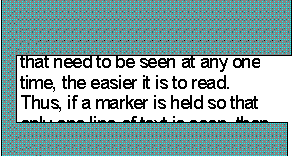
Using a marker to assist reading may help. |
| Writing
Writing is similar, with a cut out marker that helps you read only one line to be seen
at a time. With cheques and pension books or any other specific document, then a specific
cut out template makes writing easier. (Banks supply the cheque book templates.)
When writing yourself, using a black felt pen makes writing easier to
read. This is particularly useful writing shopping lists.
Items such as telephone, electric and gas bills, as well as bank statements, can all be
supplied in large print, this may mean that a lower powered magnification can be used. |

This is a template in plastic for writing cheques.

a black felt pen makes writing
easier to read |
| telephone bill
Good Hope Hospital £12,988
Ask for a large print telephone bill. |
| Photocopy Tasks such as
reading music at a keyboard are not usually helped by optical magnification. The best
method is to enlarge the copy. by photocopying: most photocopiers can do this.
|
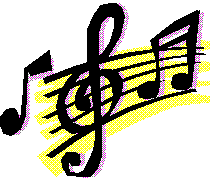 |
| Large print books Large print books can be very helpful. These can sometimes be
read with reading spectacles only, and very often with a lower powered magnifier. This
often makes it easier to read in bed for instance. |
Large Print Books Gridlock
Ben Elton |
There are many large print books available. ‘Talking
books’ are useful if large print books are no help.
|
| Talking books
If this text is too difficult to read talking books or listening to
the radio may be the only solution.
|
|
|
For some tasks it is better to use specially
manufactured items, such as talking scales or microwaves when cooking. Magnifiers can be
impractical in the kitchen.
|
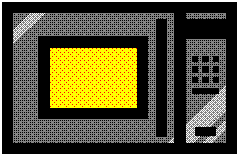
|
|
The best way to get an enlarged picture on the TV is to get closer.
Sitting close to the television will not damage the eyes.
|
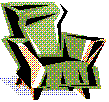
|
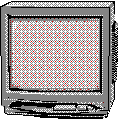 |
|
When going to the theatre, cinema or even to football matches, then small lightweight
binoculars can be very helpful. These are readily available. It is often useful to use
some that will focus to 6-8 feet (2 metres) as these are useful in the house. Many
patients find binoculars useful when watching sport on TV.
Monoculars
These can be helpful for specific tasks. |
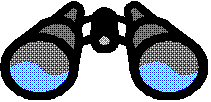
Lightweight binnoculars, lighter than
these, may help at football matches etc. |
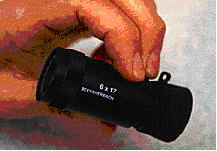
Monocular telescopes
may help in and out of the house. Use with the good eye. Close up picture above, in use
below. |
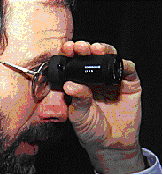
|
| Hobbies & Interests
Different tasks require different degrees of magnification, and also different types of
magnifier. It is therefore extremely important that the optometrist (or whoever provides
the magnifying aids) knows what each person’s needs to do and what their hobbies are.
If you have an unusual hobby, to show the optometrist how you like to work or hold
whatever you are doing. The optometrist must know the ‘working distance’: this
is the distance from the eyes to the book, newspaper, painting, piano music, or sewing
held in the hands.
|
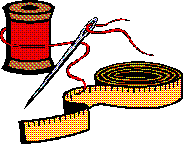
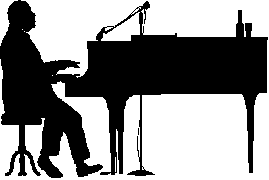
|
| In
summary
Macular damage, whether ARMD or maculopathy from diabetes will slow down critical
visual tasks, but with adequate magnification, good lighting and practice, it should be
possible, albeit slowly, to do most everyday tasks.
|
|
|